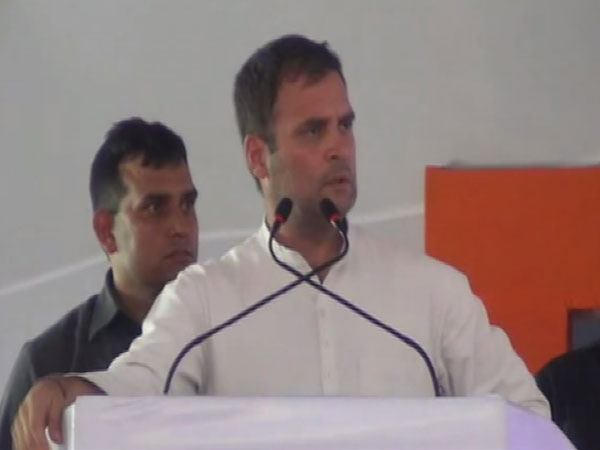New Delhi: Congress President Rahul Gandhi on Monday asked the Supreme Court to dismiss the contempt petition filed against him by the BJP, terming it a political move and also an attempt to gag him in a political discourse during ongoing elections.
Gandhi, in his affidavit, contended that the contents of the explanation submitted to the court on April 22 were comprehensive and may be read as a part and parcel of the present reply.
Although both explanations submitted in court are similar in nature, the affidavits do express regret but don’t offer an apology.
Gandhi urged that Meenakshi Lekhi, by filing the contempt petition, was trying to drag the court into a political controversy and taking political mileage. He said that Lekhi should pay for abusing the judicial process by filing this contempt petition.
The Congress President had filed a similar affidavit in the court to explain his reaction on the April 10 court order on the use of leaked Defence Ministry documents for the Rafale review petition.
Gandhi had said that the court said “Chowkidar chor hai”, repeating a slogan that he and his party have used to target Prime Minister Narendra Modi. He justified the slogan as his party’s stand on the defence deal.
Gandhi expressed regret for ascribing the comments to the court and said this happened in the “heat of campaigning”.
Gandhi in his affidavit told the court that his remarks were not meant to scandalise the court in any manner.
The fresh affidavit is Gandhi’s response to the apex court notice issued after his lawyer Abhishek Manu Singhvi last week told the court that it had “not issued notice” to his client but only sought an explanation.
At this, Chief Justice Ranjan Gogoi issued notice to the President of the Grand Old Party.
The court will take up his affidavit in response to the contempt notice on Tuesday. The court has already exempted him from personal appearance.
Gandhi, justifying his stand, said: “The Rafale issue had been and continues to be one of the most prominent political and social issues in this country for many months and despite the matter being subjudice has been the subject of incessant discussion in civil society and the media.”
[source_without_link]IANS[/source_without_link]

